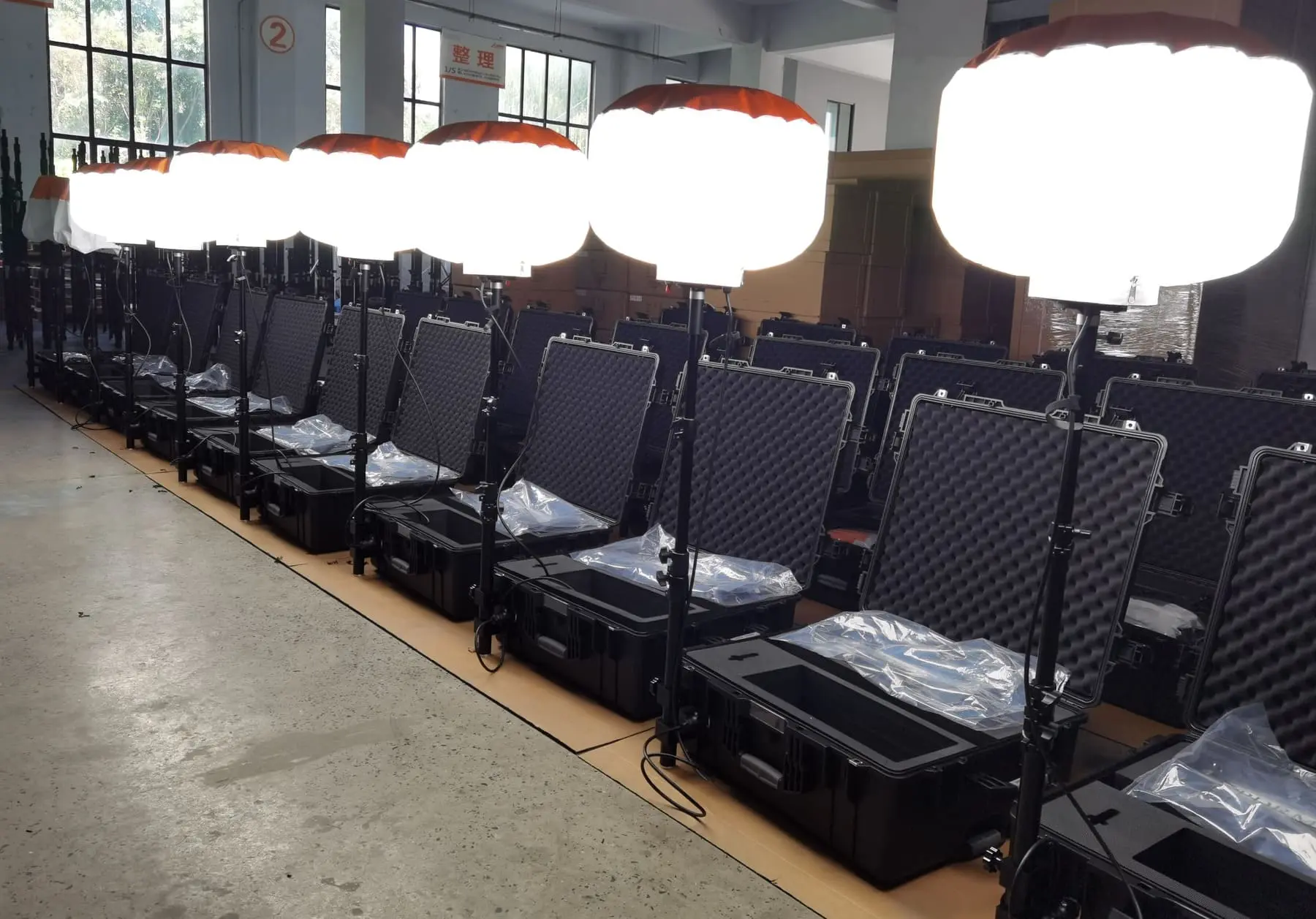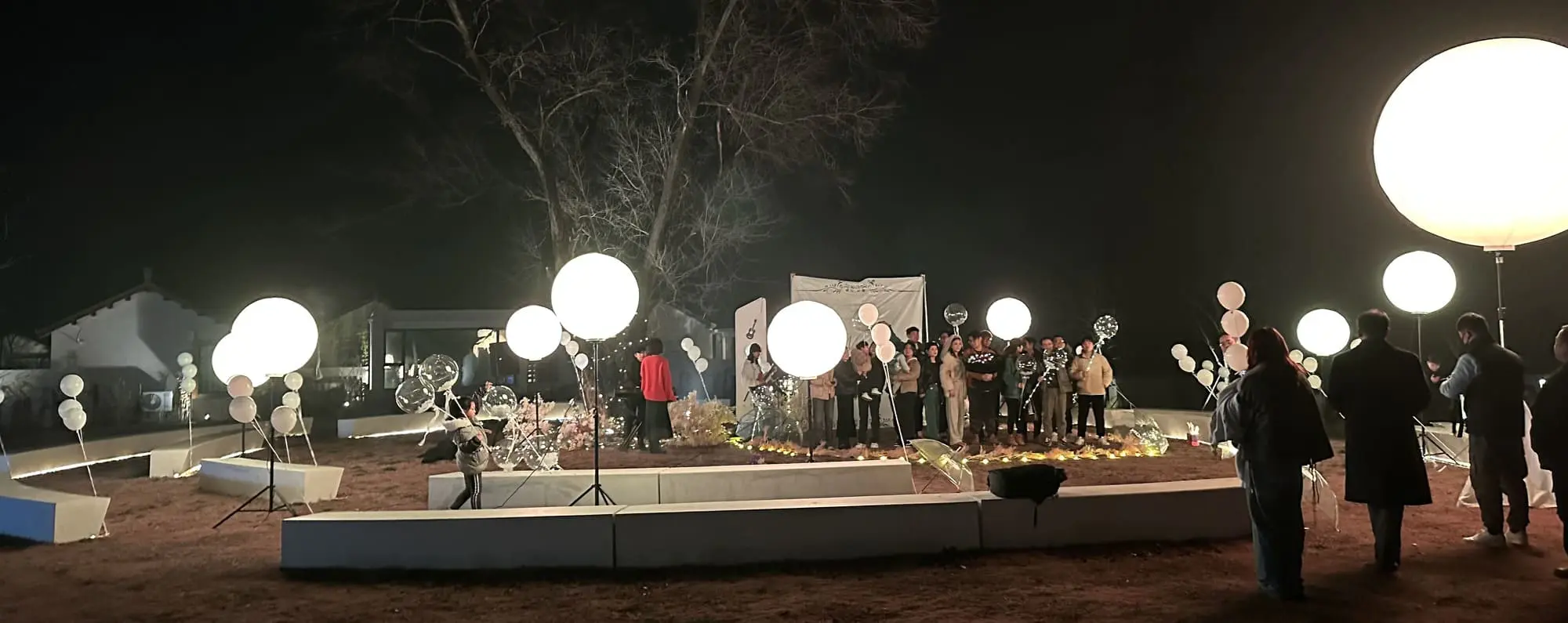In an emergency tender, every spec matters—one wrong light could cost lives or contracts.
Yes, you should include balloon light towers1 in emergency lighting2 tenders because they offer fast deployment3, glare-free illumination4, and certified safety5 in harsh and unpredictable conditions.

Emergency lighting is not just about brightness—it’s about reliability, speed, and safety. Whether the tender is for disaster response6, civil defense, or search-and-rescue7, the lighting solution must work under pressure. Balloon light towers meet the challenge. They are fast to deploy, easy to transport, and stay stable in wet, windy, or dark environments. If your tender includes them, you’re submitting a safer, smarter, and more competitive bid.
Why Is Fast Setup Crucial in Emergency Lighting Tenders?
In a crisis, minutes can save lives—slow lighting can cost them.
Balloon towers are ideal for emergency bids because they deploy in under five minutes without tools or heavy equipment, meeting the urgent timing needs of disaster response6 specs.

Most emergency tenders require lighting systems that can be set up instantly. Balloon light towers are powered by built-in fans and inflate on-site in just a few minutes. No poles to raise, no wires to assemble. One person can unpack and run a unit alone. This rapid response feature is often listed as a mandatory or preferred spec in rescue or civil defense contracts. Including this ability in your proposal boosts your score and shows you're ready for real-world emergencies.
Speed & Efficiency in Emergencies
| Emergency Requirement | Balloon Tower Capability |
|---|---|
| Setup Time <10 minutes | 3–5 minutes average |
| Tool-Free Deployment | Yes, plug-and-play operation |
| Solo Operation Possible | Yes |
| Lightweight Design | Fits in single responder vehicle |
| No External Setup Equipment | None required |
In tenders that prioritize speed and mobility, balloon towers often outperform traditional towers—and help your bid stand out.
How Do Balloon Towers Improve Safety in Critical Conditions?
Emergencies are already chaotic—lighting shouldn’t make them worse.
Balloon towers improve on-site safety by providing glare-free, 360° illumination that avoids visual hazards8, creating a stable and safe working environment.

In rescue zones or accident areas, visibility is everything. But harsh spotlights can blind medics, confuse victims, or distract drivers. Balloon towers use diffused LED lighting, enclosed in fabric domes that soften and spread the light evenly. There are no hot spots, no blinding beams—just clean, safe illumination. This aligns with emergency tender specs asking for glare-free light that improves visual clarity without increasing risk.
Safety Features That Score in Tenders
| Lighting Concern | Balloon Tower Solution |
|---|---|
| Worker Visual Fatigue | Soft, full-area lighting |
| Glare at Traffic Accidents | Fully diffused output |
| Risk of Burns from Equipment | No hot metal, cool LED source |
| Shadows on Work Area | 360° light reduces dark zones |
| Safety Certifications | CE, UL, ETL, SAA included |
Safety is often a separate scoring category in tenders. If your lighting improves safety directly, you gain more than just compliance—you gain points.
Why Do Balloon Towers Excel in Harsh Emergency Environments?
Lighting gear has to work when the weather doesn’t.
Balloon light towers are built to withstand tough conditions—IP65 water resistance9, stable base anchoring, and rugged construction make them perfect for unpredictable emergency sites.

Emergency tenders often demand lighting that can handle storms, floods, or wind. Balloon towers have inflatable structures that don’t topple easily, plus sealed electronics protected against dust and rain. Many use IP65-rated components, and some are operable at extreme temperatures. If your lighting doesn’t survive the first downpour, it fails the project. Including balloon towers that are rated for these environments can help you meet both technical and field-readiness requirements in one go.
Environmental Performance Breakdown
| Environmental Condition | Balloon Tower Resistance |
|---|---|
| Heavy Rain | IP65 water resistance9 |
| Dust and Debris | Fully enclosed body |
| Windy Terrain | Anchored base, stable design |
| Heat or Cold Conditions | LED tech operates -20°C to 50°C |
| Mobility Over Rough Terrain | Compact, easy-carry system |
When evaluators see these traits in your proposal, they know the lighting won’t be a weak link in the field.
Conclusion
You should include balloon light towers1 in your emergency lighting2 tender because they deliver fast setup, glare-free safety, and rugged durability—matching the demands of real-life disaster and rescue operations.
-
Explore how balloon light towers enhance safety and efficiency in emergency situations. ↩ ↩
-
Get insights into effective emergency lighting strategies and technologies. ↩ ↩
-
Learn why rapid setup can be a lifesaver in critical situations. ↩
-
Discover the advantages of glare-free lighting for rescue operations. ↩
-
Find out which safety certifications are essential for emergency lighting equipment. ↩
-
Explore the critical role of lighting in effective disaster management. ↩ ↩
-
Learn about the importance of lighting in successful search-and-rescue missions. ↩
-
Understand the risks associated with poor visibility in emergencies. ↩
-
Discover the significance of IP ratings for outdoor lighting durability. ↩ ↩




